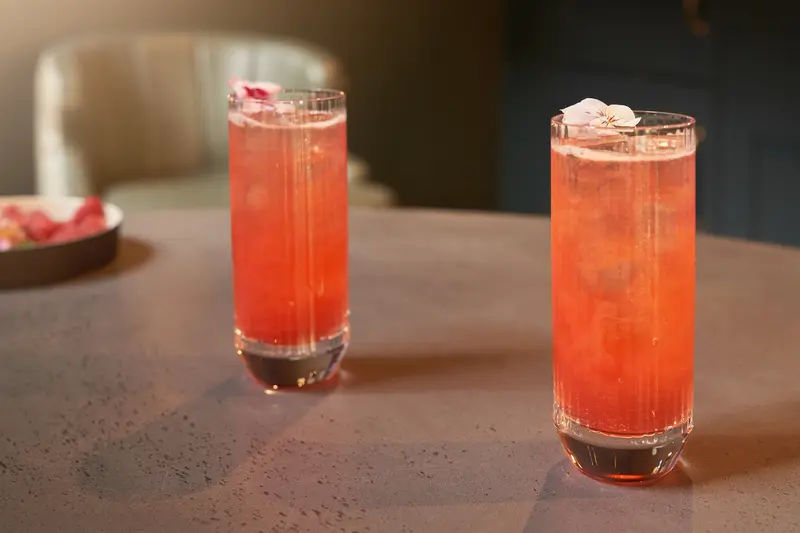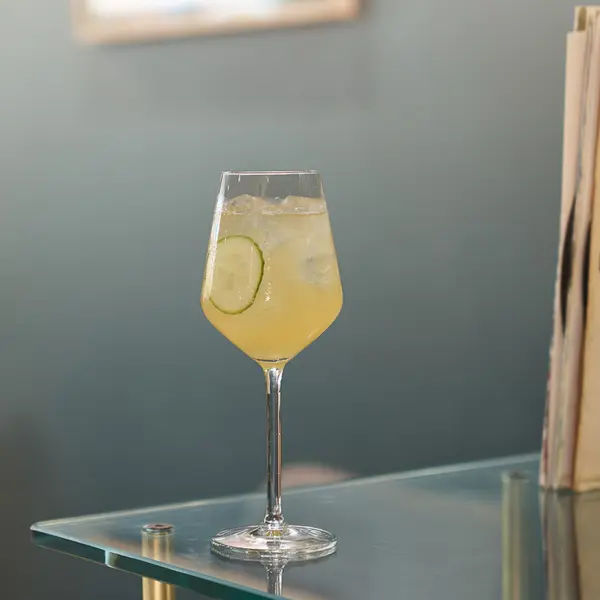
Mocktail Vs Cocktail: What’s the Difference?
“I’ll have a cocktail, hold the alcohol.”
15-20 years ago, such a request would have gotten some seriously curious looks from any bartender or host. These days, however, a non-alcoholic cocktail or “mocktail” has become a much more common order at many bars and restaurants as a way to enjoy much of what a cocktail has to offer without consuming any alcohol.
In this article, we’ll explore the difference between cocktails and mocktails, and why a cocktail and mocktail combo can add up to a great night spent with friends.
What Is A Mocktail?
Mocktails and low-ABV drinks are becoming increasingly popular choices for responsible drinkers the world over. A delicious alternative, mocktails bring unique flavour variations and the hard-to-miss eye appeal of traditional cocktails, without needing to keep in mind that any alcohol you consume needs to be done so responsibly.
Excluding alcohol, mocktails are made from many of the same ingredients as cocktails. Simple syrup, mint leaves, lime juice, lemon juice, soda, ginger beer, bitters, grenadine, tonic water, the list is endless. As with cocktails, mocktails are a great way to show off your mixology skills and spend an evening hosting friends.
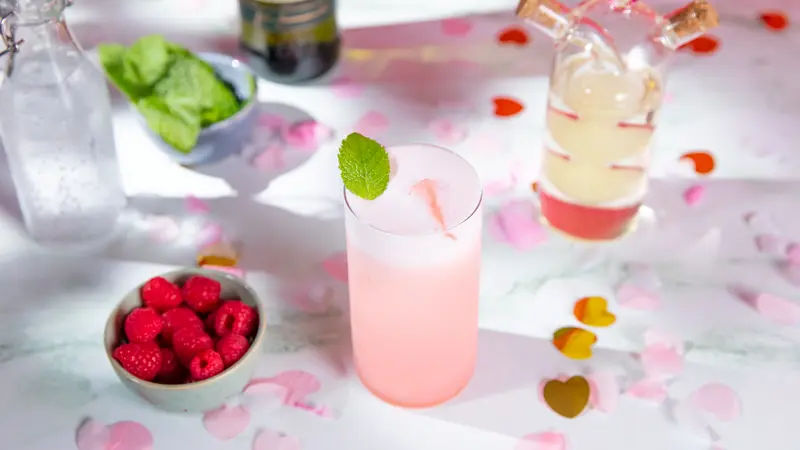
On the topic of excluding alcohol; do mocktails have alcohol in them?
The answer to this is: it depends.
In the vast majority of cases, you needn’t worry. Asking “Does this mocktail contain alcohol?” usually refers to alcohol in the traditional sense: A shot of whiskey, for example. The “mocktail” meaning comes from the fact that it looks and tastes similar to an alcoholic cocktail but doesn’t have the main alcoholic ingredients.
However, while mocktails shouldn’t have any high-ABV spirits, and are considered a non-alcoholic drink, there might be alcoholic products used in small quantities to create the mocktail. Just bear this in mind if you are creating a mocktail for guests who are strict about their alcohol consumption.
Many cocktail drinkers are now incorporating mocktails into an evening of drinking with friends. Responsible drinking is all about balance, and a mocktail or two can be wonderfully beneficial in ensuring a night enjoying cocktails stays enjoyable.
What Is A Cocktail?
A cocktail is the name given to a style of mixed drink. Are cocktails alcoholic? Yes, cocktails do contain alcohol and are traditionally made using one or more high-ABV spirits. Cocktails are as closely associated with the variety and skill with which they are made.
Cocktails can be as simple or as complex as desired, ranging from as little as three ingredients put together in a glass relatively quickly, to preparing multiple ingredients days in advance. There are few rules when it comes to cocktail-making, while most cocktails use a mixer of syrup, juices, herbs, spices, as well as spirits, many can incorporate more unusual components such as pickle brine or green tea.
Much like cooking or baking, the creativity of concocting a delicious cocktail recipe is a sight to behold. Not only should cocktails taste great, but they should look great (we first taste with our eyes, after all). One of the best ways to bring a cocktail to life visually is with garnish, and we have a list of creative cocktail garnishes to go along with the essential component of any cocktail, Jameson Irish Whiskey, right next to all of our amazing whiskey cocktail recipes.
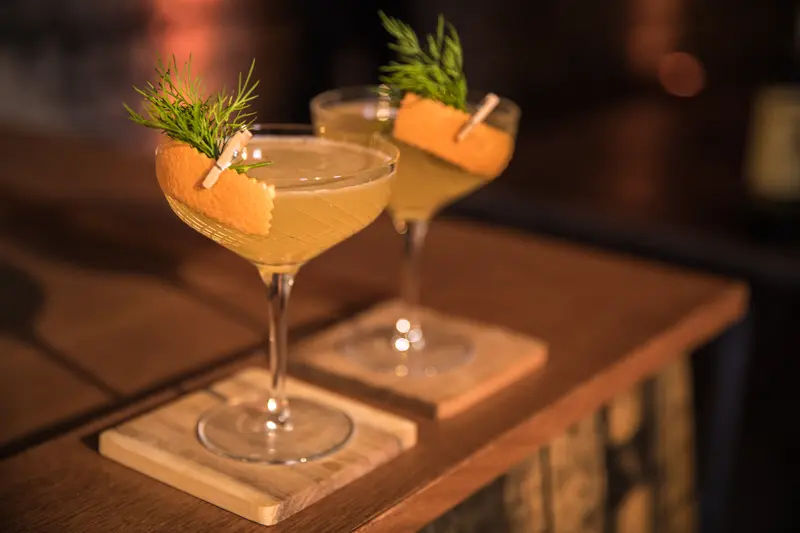
Differences Between Cocktails and Mocktails
Let’s break down the difference between cocktails and mocktails and see how they differ. As mentioned previously, mocktails are designed to provide a similar look and taste to regular cocktails with a few key differences.
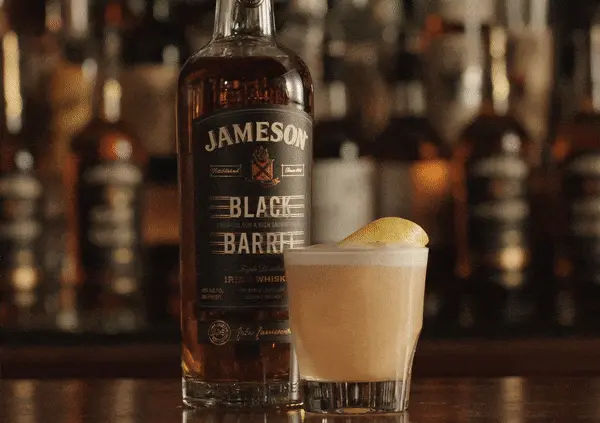
1. Ingredients
Cocktails are often built around a main spirit or alcohol (Irish whiskey, in our case) with additional ingredients mixed with said spirit. For example, a simple cocktail is our Jameson, Ginger and Lime, which is Jameson mixed with ice, ginger ale and a wedge of lime.
As we said, ingredients for cocktails can run the gamut from a simple mixer of base alcohol with soda or syrups to something more complex like a Whiskey Sour, which mixes egg white, simple syrup, lemon juice and bitters with the show stopping Jameson Black Barrel.
Mocktails are made in the same fashion using juices, tonics, herbs and spices, with a key difference: there is no base alcohol. This can be interpreted in 2 ways.
1) Creating a mocktail that gets as close to the flavour and look of a well-known cocktail as it can.
2) Creating a completely new drink that has not been designed around the flavour of a base alcohol.
Both avenues can deliver amazing results in look and taste. There are also non-alcoholic spirits which replicate the taste of the base alcohol without the ABV. Non-alcoholic gin is very popular when replicating gin-based mocktails.
2. How They’re Made
Cocktails and mocktails are made through a variety of techniques, plenty of which you’ve seen a mixologist use at a cocktail bar. Shaking liquids in a cocktail shaker, muddling (crushing) fruits or herbs in the bottom of a glass and stirring with ice are all part and parcel of the process. A step above this is seeping teas and spices in hot water, using smoke from wood or aromatics to impart flavour, and, of course, using the right straining methods to get the consistency desired.
Cocktails are all about balance. Spirit alcohols have strong flavours. It is essential to measure each cocktail’s ingredients accurately to ensure the balance of ingredients not only complements said spirit but also to know how much alcohol is being consumed.
A good mocktail requires similar attention. Whether you’re reproducing a non-alcoholic version of a classic cocktail or inventing something new, measuring your ingredients will allow you to get the most out of individual flavours to create something unique.
3. Taste
At the end of the day, it all comes down to taste. Cocktails are drinks made to suit any palate. Sweet, bitter, spicy, sour or even a little salty (we’re looking at you, Margarita), there is a cocktail/mocktail for everyone.
A good mocktail will lean heavily into extracting the most flavour from its ingredients, drawing on the sweetness of fruit juice, the tang of citrus and the aroma of herbs to deliver a satisfying taste experience. Some cocktails pack a punch and some mocktails punch right back!
Mocktails vs. Non-Alcoholic Drinks
As mentioned above, when answering the question, “What’s a mocktail?”: Mocktails are crafted to mimic the complex taste and presentation of cocktails.
Unlike water or soda, mocktails, along with alcohol-free beers and wines, are specific types of non-alcoholic drinks that are considered a close substitute for the traditional alcoholic version. The Arnold Palmer is what many would consider the first popular “summer mocktail”. Named after the famous golfer, the mixture of iced tea and lemonade became a fashionable drink to order at country clubs in the 1960s and unintentionally came to represent enjoying a bar setting experience without the need for alcohol.
Mocktails vs. Cocktails – Which One to Choose?
Oh, decisions, decisions. When it comes to choosing a cocktail vs mocktail, it’s a matter of occasion, audience, and personal preference.
Do cocktails have alcohol? Yes. Am I free of other commitments to enjoy a few cocktails with friends? If the answer is also Yes, then by all means, enjoy some carefree cocktails. Alternatively, mocktails are the ideal solution to an alcohol-free evening with all the fun. And of course, nothing is stopping you from incorporating both cocktails, mocktails, and low-ABV drinks like the ones here at any party or gathering.
Regardless of what you choose to drink, when it comes to cocktails and mocktails, everything comes down to balance. Balance in flavours and balance when drinking responsibly.
For more cocktail info, discover our Cocktail FAQs.
